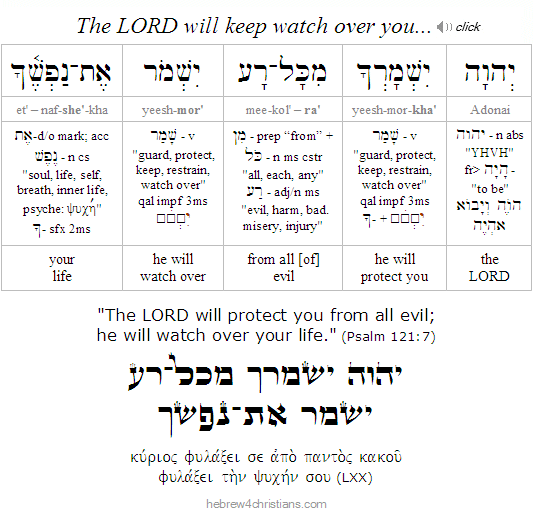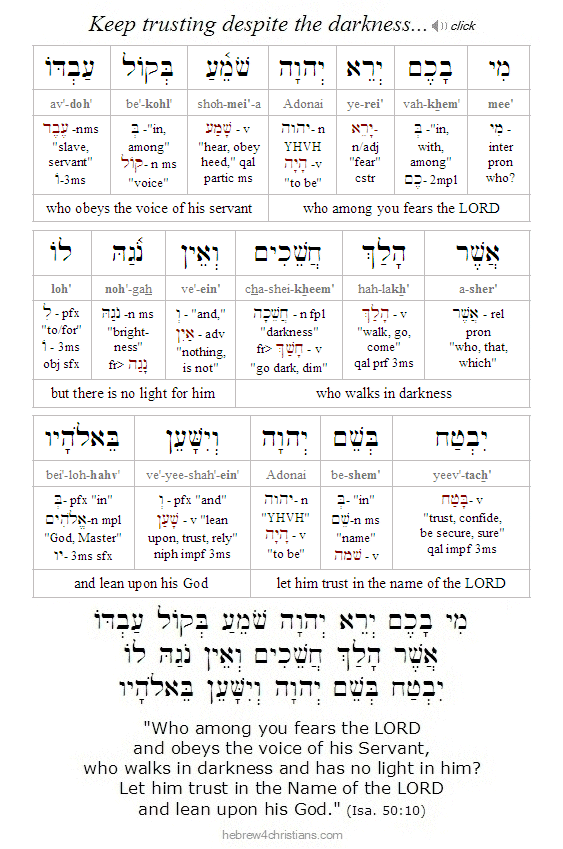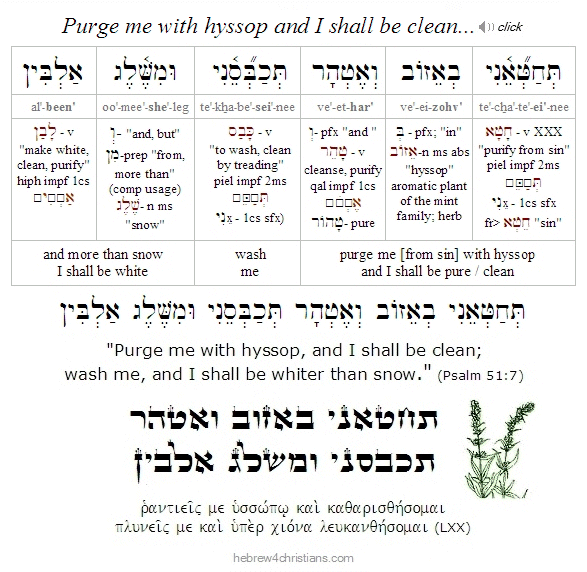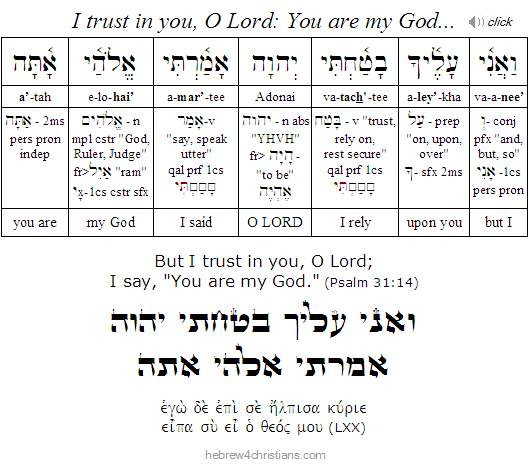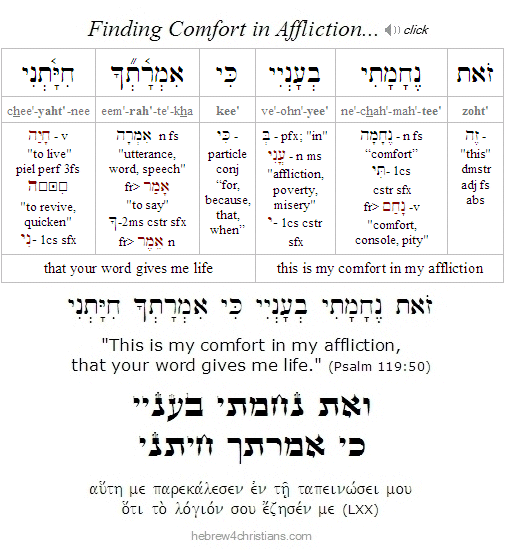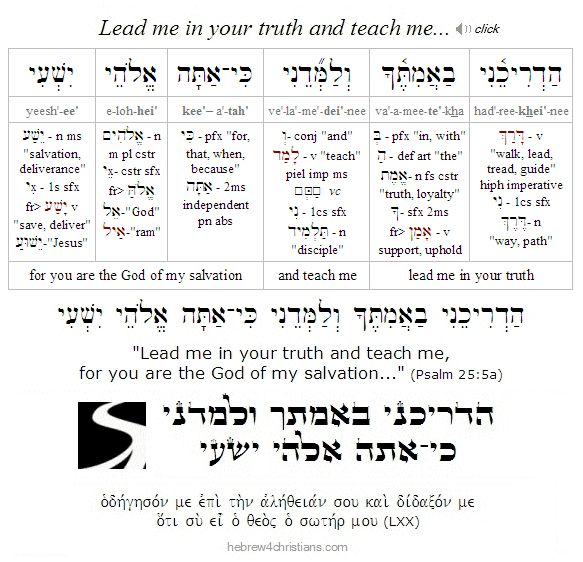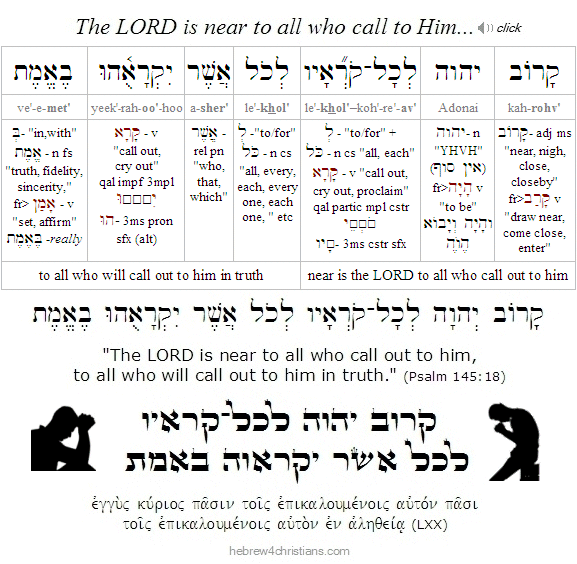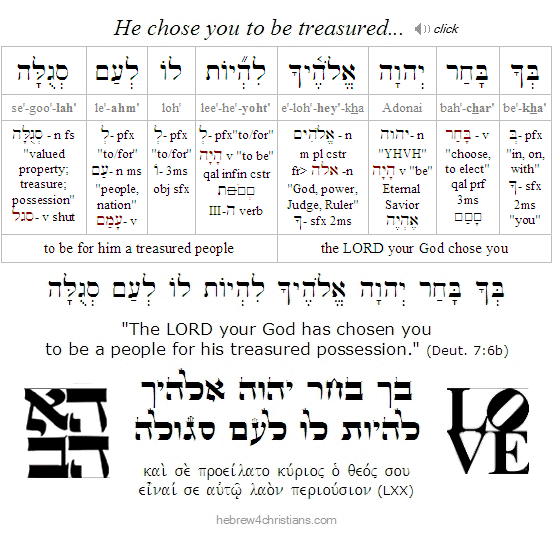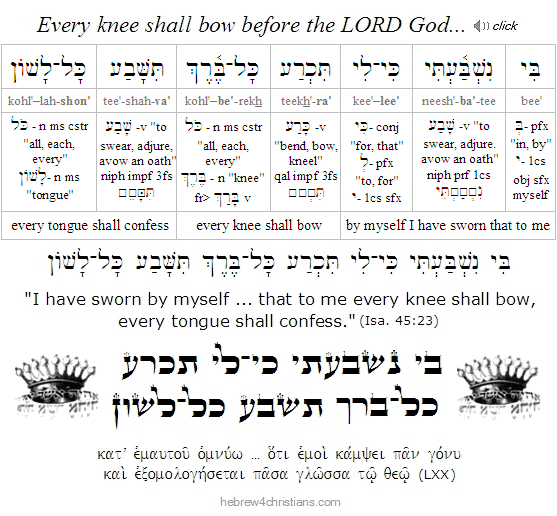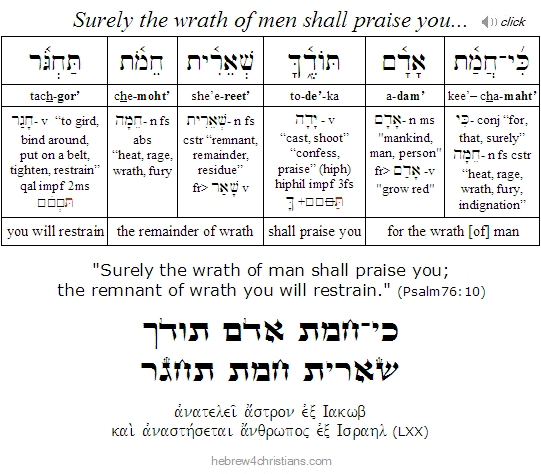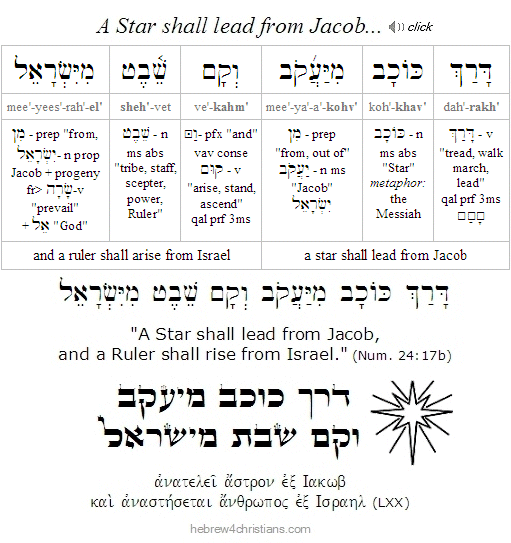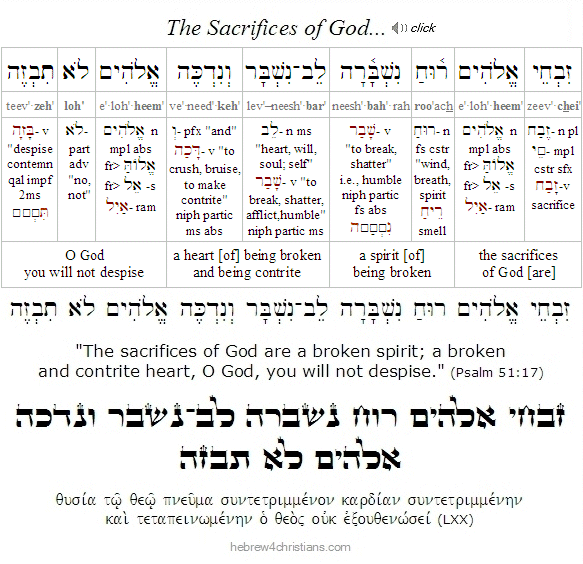|
|
|||||||||||||||||||||
 |
|||||||||||||||||||||
|
Learn Hebrew |
|||||||||||||||||||||
 |
|||||||||||||||||||||
|
Learn Torah |
|||||||||||||||||||||
|
July 2020 Updates (continued)
07.03.20 (Tammuz 11, 5780) The message of teshuvah (repentance) is one of healing. As is written in our Torah, "Guard well your souls..." (וְנִשְׁמַרְתֶּם מְאד לְנַפְשׁתֵיכֶם) [Deut. 4:15]. The Hebrew grammar of this verse is a bit unusual, since the verb shamar (שָׁמַר), meaning to "guard" or to "keep," is written in the passive voice (niphal), i.e., "Let yourselves be guarded well..." If we open our hearts to heed or listen to the truth of God - if we let go and surrender to God's will for our lives - we will be protected from the snares of idolatry. "Know therefore today, and lay it to your heart (וַהֲשֵׁבתָ אֶל־לְבָבֶךָ), that the LORD is God in heaven above and on the earth beneath -- there is no other" (Deut. 4:39). When you surrender from the heart you will understand that "the LORD is your Guard" (יְהוָה שׁמְרֶךָ); the LORD is yishmor et nafshekha - "the One who guards your life" (Psalm 121:5,7).
Keep on Trusting... 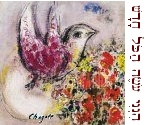 07.03.20 (Tammuz 11, 5780) When Yeshua said, "Let not your heart be troubled... I go to prepare a place for you," he was assuring his friends that he had matters well under his control, and therefore they did not need to worry, since his passion rendered their salvation completely secure... The future is a "prepared place" for you, even if life in this world is often marked by testing and various refining fires. God has not promised to rescue us according to our own schedule, however, so if it appears that your prayers are not immediately answered, keep waiting in faith: "Rejoice, even if you have been grieved by various trials, because the tested genuineness of your faith -- more precious than gold that perishes though it is tested by fire -- may result in praise and glory and honor at the revelation of Yeshua the Messiah" (1 Pet. 1:6-7). God works "all things together for good," and since the exercise of faith is your good, he engineers all things to build your faith. "For my thoughts are not your thoughts, neither are your ways my ways, says the LORD" (Isa. 55:8).
The very last promise of Scripture is "I come quickly" (אֲנִי בָא מַהֵר) and the last prayer is, "Amen, come, Lord Yeshua" (אָמֵן בּאָה־נָּא הָאָדוֹן יֵשׁוּעַ) [Rev. 22:20]. Meanwhile we "inwardly groan" for the fulfillment of our redemption; since presently we are suspended between worlds, walking in hope yet subject to the vanities that befall all flesh. And though God may tarry, He declares, "I am the LORD; in its time I will hasten it" (Isa. 60:22). So we are made captives to hope, clinging to the promise of our ultimate healing and redemption. Our hearts therefore affirm that God is faithful "to keep you from falling, and to present you faultless before the presence of his glory with exceeding joy" (Jude 1:24). Amen. God will help us before He will help us, and may He come speedily, and in our day....
Daily Dvar Podcast: Independence Day... 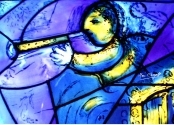 07.03.20 (Tammuz 11, 5780) I don't usually post about politics, as most of you know, though in the United States we are about to commemorate the Declaration of Independence and the establishment of a Constitutional Republic -- matters that many today discount and some even want to overthrow. So this is an opportune time to think about the significance of "Independence Day" and whether it is something we should indeed honor and celebrate.
The Scarlet Thread... 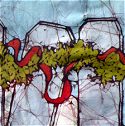 [ The following entry concerns this week's Torah reading, parashat Chukat (Num. 19:1-22:1). Please read the Torah portion to "find your place" here. ] תְּחַטְּאֵנִי בְאֵזוֹב וְאֶטְהָר te·cha·te·ei'·nee · ve·e·zohv · ve·et·har "Purge me with hyssop, and I shall be clean; Click to listen and learn the Hebrew text: We find cleansing and healing from the LORD: "Come, let us reason together," says the LORD. "Though your sins have stained you like scarlet, you can become white like snow; even though they are red as crimson, they will be like wool" (Isa. 1:18). As our Torah portion this week explains, scarlet was one element added to the fire of the red cow to create the purifying waters that were applied by hyssop branches. The Hebrew word for "scarlet" (שני) means "double-dyed," from shanah (שנה), to repeat or double, suggesting the deep stain of sin within the human heart... Scarlet was also added to the running water when the metzora ("leper") was cleansed.
Decrees of the Heart... 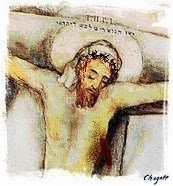 07.03.20 (Tammuz 11, 5780) The classical sages have said that "chukkim" (חקים), or the divine decrees whose rationale defy human understanding, are necessary for the practice of faith since otherwise people would attempt to rationalize spirituality into merely ethical concerns... The sacrifice of the red heifer transcends human comprehension, just as the divine exchange makes the pure impure and the impure pure. That is the great message of the cross, after all: "For our sake God made Yeshua to be sin who knew no sin, so that in him we might become the righteousness of God" (2 Cor. 5:21). The deeper aspects of revelation go beyond human reason since they are bound up in the heart and passion of God. The cross of Yeshua reveals the Center of God's Mysterious Love for us. וַאֲנִי עָלֶיךָ בָטַחְתִּי יְהוָה va·a·nee · a·ley'·kha · va·tach'·tee · Adonai But I trust in you, O Lord; Click to listen and learn the Hebrew text:
Comfort in our Affiction... 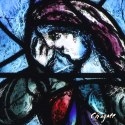 07.03.20 (Tammuz 11, 5780) "And he opened his mouth and taught them, saying... 'Blessed are those who mourn, for they shall be comforted' (Matt. 5:4). Mourning is the expression of care, the voice of pain, the sorrow of a broken heart. Those who mourn care deeply; they feel the weight of loss; they grieve over sin. Such sorrow expresses the longing to be released from inner sickness of evil, as Yeshua said: "from within, out of the heart of man, come evil thoughts..." (Mark 7:21). Our own evil desires convict us of the truth... Here there is no place left to hide, no rationalization, no vain hope for self-reformation - just the raw revelation of our fatal condition and the sincere appeal for God's mercy in Yeshua. Mourning over our sins draws us to God, to the Comforter (παράκλητος) who "comes alongside" to bind up the broken heart. The danger remains, however, for those who deny their sin and refuse to mourn, since they are made blind to God's forgiveness and comfort (John 9:41). How shall God be able in heaven to dry up your tears when you haven't wept? זאת נחמתי בעניי zoht · ne·cha·ma·tee · ve·ohn·yee "This is my comfort in my affliction, Click to listen and learn the Hebrew text: One of the great tests of our faith is "enduring ourselves" as we learn to love as God loves us... To do so, we must receive the miracle of Yeshua. We must look beyond the realm of appearance, where the "outward man" perishes, to the realm of ultimate healing, where the "inward man" is finally liberated from the ravages of sin and death. This is comfort we have in affliction: God's promise revives our hearts to say, "I know that my Redeemer lives, and at the last he will stand upon the earth" (Job 19:25). Even in the "shadow of the valley of death" (i.e., this moribund and broken world), the LORD is with us and comforts us with His Presence (Psalm 23:4). We are given this great promise: "Just as we have borne the image of the man of dust, we shall also bear the image of the man of heaven" (1 Cor. 15:49).
Decision and Revelation... 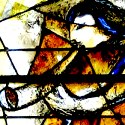 [ Every day we make decisions regarding good and evil, and therefore every day we are deciding (i.e., proclaiming, teaching, and attesting) our faith to others... ]
Moving Heaven and Earth...  07.03.20 (Tammuz 11, 5780) Act as if your choices have eternal significance; they do; pray as if your life depends on it; it does. Praying in accordance with the will of God - namely, for you to know God, to walk in the light of love, joy, peace; to be filled with wisdom, patience, kindness, and so on, will assuredly move heaven and earth (1 John 5:14). God is forever faithful and always hears those who call out to him with sincerity of heart: "The LORD is near to all who call on him, to all who call on him in truth." קרוב יהוה לכל־קראיו ka·rov' · Adonai · le·khol' - ko·re·av' "The LORD is near to all who call on him, Click to listen and learn the Hebrew text:
Rebirth and Spiritual Death...  07.02.20 (Tammuz 10, 5780) People tend to underestimate the radical nature of their sinful condition, which truly is a "sickness unto death." However, even the metaphor of lethal sickness itself is not strong enough, since the spiritual condition of the natural man is spiritual death... Apart from direct divine intervention on behalf of the individual soul, a person is literally unable to respond to God and receive the gift of eternal life. That is why Yeshua taught that we need a spiritual rebirth in order to see the Kingdom of God (John 3:3). This is the new principle of life from God (i.e., chayim chadashim: חַיִּים חֲדָשִׁים) that operates according to the "law of the Spirit of life" (Rom. 7:23, 8:2). God loves His children with "an everlasting love" (i.e., ahavat olam: אַהֲבַת עוֹלָם) and draws us to Himself in chesed (חֶסֶד, i.e., his faithful love and kindness). As it is written: "I love you with an everlasting love; therefore in chesed I draw you to me" (Jer. 31:3). Note that the word translated "I draw you" comes from the Hebrew word mashakh (מָשַׁךְ), meaning to "seize" or "drag away" (the ancient Greek translation used the verb helko (ἕλκω) to express the same idea). As Yeshua said, "No one is able to come to me unless he is "dragged away" (ἑλκύσῃ, same word) by the Father" (John 6:44). We are chosen from above (John 15:16). God's chesed seizes us, takes us captive, and leads us to the Savior... Spiritual rebirth is a divine act of creation, "not of blood nor of the will of the flesh nor of the will of man, but of God" (John 1:13). God is always preeminent, and the salvation of a particular soul is ultimately His prerogative.
Daily Dvar Podcast: Torah of the Vine...  07.02.20 (Tammuz 10, 5780) In today's "Daily Dvar" broadcast (link below) I discuss the "Torah of the Vine," that is, the analogy of the Vine and the branches that Yeshua taught his disciples: "If anyone does not live in me, he is cast off as a branch, and withers..." (John 15:6). We find life only as we remain connected to the Source and Conduit of life, who is the Messiah, the Savior and LORD. True life grows out a heart connection with Yeshua, and without that connection our lives become vain and yield no eternal significance. I hope you find it encouraging, friends.
Plastic Words and Covetousness  [ The following entry concerns this week's Torah reading, parashat Balak. Please read the Torah portion to "find your place" here. ]
Daily Dvar Podcast: Matters of Death and Life...  07.01.20 (Tammuz 9, 5780) Shalom chaverim. Today's "Daily Dvar" broadcast discusses matters of death and life in terms of the gospel message of Yeshua our Messiah. I hope you will find it encouraging. You can listen by clicking the link(s) below:
Curses turned to Blessings...  07.01.20 (Tammuz 9, 5780) God can (and does) turn curses into blessings (see Neh. 13:2). For example, Joseph was blessed despite the ill-will of his brothers: "You devised evil against me, but God devised it for good" (Gen. 50:20). Note that the same verb for "devised" (i.e., chashav: חשׁב) is used to describe both the evil intent of the brothers and the good intent of the Lord. This teaches us that God overrules the malice of men to effect his own good purposes, and therefore we can rightfully affirm gam zu l'tovah (גם זו לטובה), "this too is for good" (Rom. 8:28). Underlying the surface appearance of life (chayei sha'ah) is a deeper reality (chayei olam) that is ultimately real, abiding, and designed for God's redemptive love to be fully expressed. Resist the temptation, therefore, to judge by mere appearances. Forbid your troubles (or the troubles of this world) to darken the eye of faith. Do not unjustly judge God's purposes or try to understand His ways. As the story of Balaam shows, God makes even the wrath of man praise Him (see Psalm 76:10). "Then God opened Balaam's eyes, and he saw the Angel of the LORD (מלאך יהוה) standing in the way, with his drawn sword in his hand. And he bowed down..." (Num. 22:31). Indeed, every knee will bow to the LORD our God and Savior (Isa. 45:22-23; Phil. 2:10-11).
We find comfort that the schemes of the wicked are ultimately subject to the sovereign purposes of the LORD our God. Ein od milvado (אין עוד מלבדו) - there is no power that can be exercised apart from God's consent and overarching will... Indeed all authority on heaven and earth belongs to Yeshua, the "the Ruler of the Kings of the earth" (עֶלְיוֹן לְמַלְכֵי־אָרֶץ). As it is written, "All the nations you have made shall come and worship before you, O Lord, and shall glorify your name" (Psalm 86:9). Amen. Hashevenu, Adonai...
The Shout of the King... 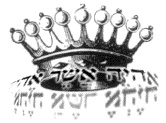 [ In our Torah portion this week (Balak), we read how Balaam intended to curse the Israelites, but God "took hold of his tongue" and made him bless the people instead... ]
The Doctrine of Balaam...  [ The following entry concerns this week's Torah reading, parashat Balak... ]
The Star Still Shines... 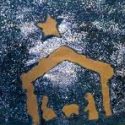 07.01.20 (Tammuz 9, 5780) In this week's Torah portion (i.e., Balak) we read an ancient prophecy of the coming Messiah: "a star shall come out of Jacob..." Amazingly, the prophet Balaam – who may have been the forebear of the "magi of the east" (Matt. 2:1-2) – actually foresaw the advent of the Messiah: "I see him, but not now; I behold him, but not near: a star shall come out of Jacob (כוכב מיעקב), and a scepter shall rise out of Israel" (Num. 24:17). Balaam's prophecy actually described the coming of the Messiah and his reign in two distinct aspects: "A star from Jacob shall come" (literally, "shall lead the way," i.e., דרך), which refers to our Messiah's first coming as the way of life (i.e., הדרך החיים, John 14:6), "and a scepter shall arise (i.e., וקם שׁבט) from Israel," refers to our Messiah's second coming to establish the kingdom of Zion upon the final redemption. דרך כוכב מיעקב da·rakh · ko·khav · mee·ya·a·kov "A Star shall lead from Jacob,
Three Weeks of Sorrow... 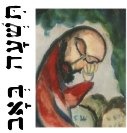 07.01.20 (Tammuz 9, 5780) According to Jewish tradition Moses shattered the tablets on the 17th day of the 4th month, after he came down from Mount Sinai and found the people worshipping the Golden Calf. Today, this tragic date is commemorated as a fast day (i.e., the "Fast of Tammuz"), which marks the beginning of a three week period of mourning that culminates on the 9th of Av (i.e., "Tishah B'Av"), the date the Israelites were sent into exile from the promised land because they believed the evil report of the spies (Num. 14:20-35).
Dates During the Three Weeks of Sorrow:
Click to listen and learn the Hebrew text:
|
||||||||||||||||||||||||||||||||||||||||
|
Hebrew for Christians |
||||||||||||||||||||||||||||||||||||||||
|
||||||||||||||||||||||||||||||||||||||||

